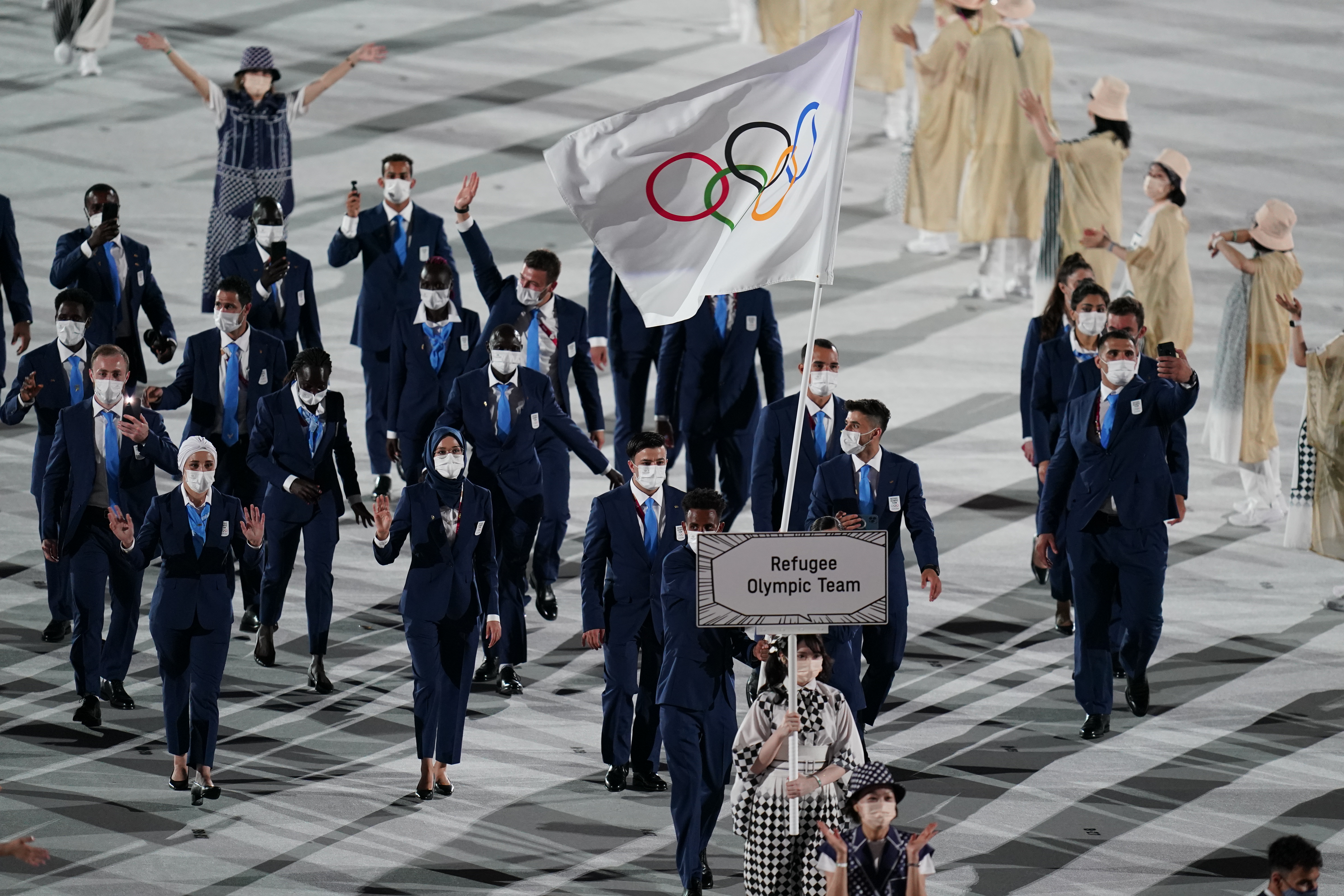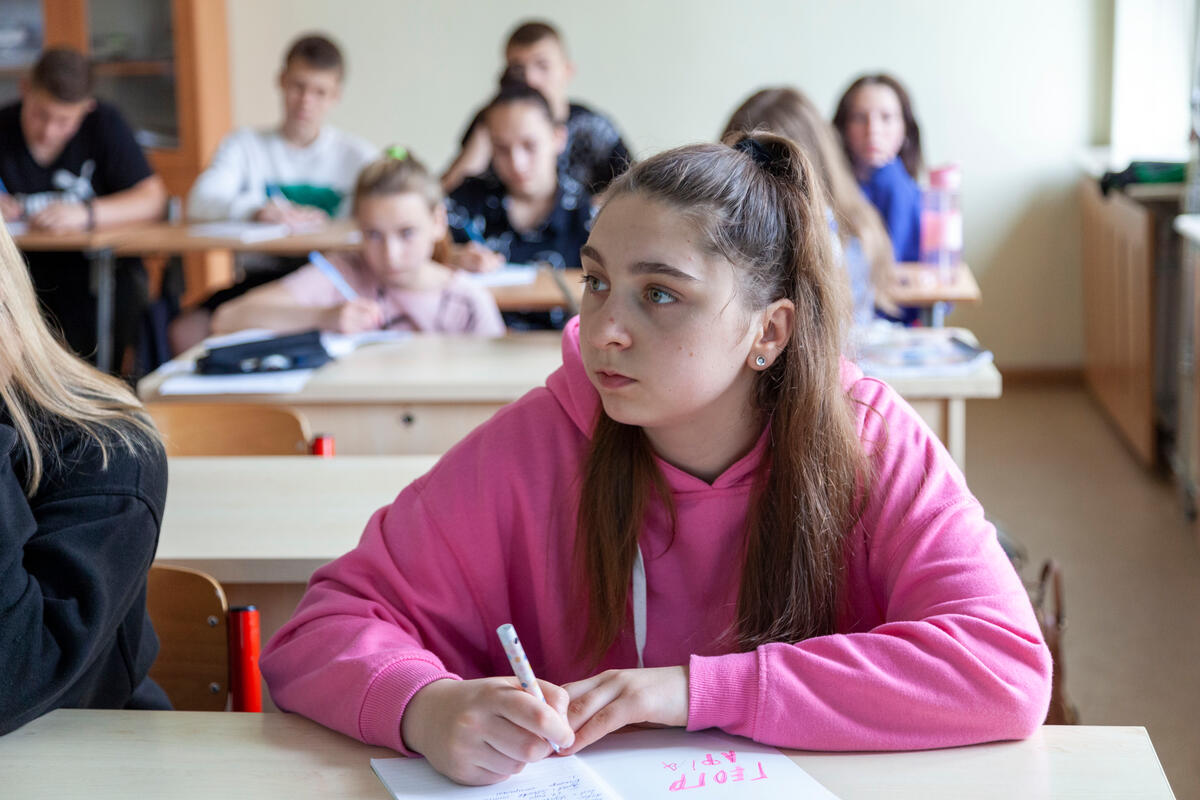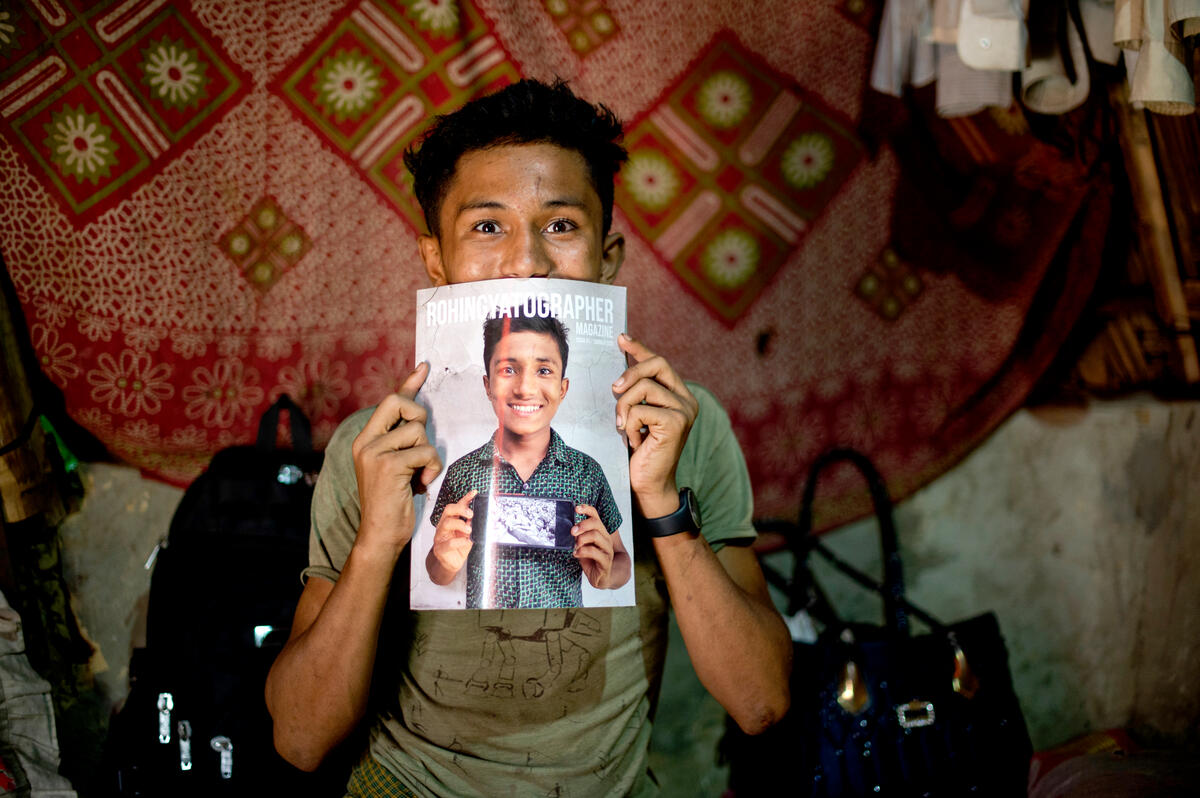"Before it comes to my house, let me run"
"Before it comes to my house, let me run"

DADAAB, Kenya, June 22 (UNHCR) - Habiba Abdi Rahman Mude is from the Medina district in Mogadishu. Forced to flee her home by fighting this past month, she recently arrived with her son, Muse, in the Dadaab refugee settlement in north-east Kenya, where she met with UNHCR's Andy Needham and told her story.
Mogadishu has been a dangerous place to live for most of Habiba's short life. She was aged seven years when her country last enjoyed a functioning government. Since then, the capital has been torn by violence on a regular basis.
But the latest outburst came too close to home. On May 13, a mortar shell landed in a neighbour's house, killing the entire family. Habiba, who has a disabled eight-year-old son, did not hesitate. She and Muse joined other neighbours who were boarding vehicles bound for neighbouring Kenya.
There was no time even to notify her husband, Muhidin Aweys, 35, who was in the nearby market at the time. Nor did she have enough money to pay the minibus fare. But a friend found a driver who agreed to take her for free.
Habiba's flight to safety lasted five days and nights. It took her from the Somali capital to Afgooye, then on through Bravo, Kuyaburooy, Jilib, Marka and other small towns that Habiba cannot recall. The minibus drove through the night, with two drivers taking turns at the wheel and stopping only for passengers to grab a meal at roadside "hotels." For five days and nights, Habiba cradled her mentally disabled son Muse on her lap.

Arriving in Kenya, she boarded another vehicle bound for Dadaab, one of the largest refugee settlements in the world.
"Things here are one hundred times better than in Mogadishu," says Habiba, resting in the Lutheran World Federation shelter where, as new arrivals, she and her son will receive plastic sheets, soap, mats and jerry cans. Her son looks on from a wheelbarrow she has acquired for him.
"There is no war or fighting here. We are just able to rest peacefully," she says . "In the last month, things have gotten worse in Mogadishu. People have been displaced, lost. You don't know where your neighbour is. When the fighting starts and there is gunfire and explosions in all directions, people are running, saying, 'Before it comes into my house, let me run.'"
Even before the fighting intensified between government forces and the Al Shabaab Islamist militia last month, "getting food and water depended on whether or not you had money. Sometimes we had money, so we had porridge. Sometimes we had no money, so we had hunger instead," Habiba explains.
"If you had money then you could go to the market, buy some small items of food and cook them immediately." Water cost about 1,000 Somali shillings, or 70 US cents, for three 20-litre cans.
Now Habiba can get food and water. As a registered refugee, she can collect 15 days' worth of rations for her and Muse on the last day of the current food distribution cycle. Shelter is a bit more problematic: Dadaab, with almost 300,000 people, is badly overcrowded and UNHCR does not have any more land to parcel out to new arrivals. For now, Habiba is sharing a space with a female relative and her family who have been in Dadaab for the past four years.
Habiba also plans to visit Handicap International (HI), an NGO. She is hoping to get a wheelchair for her son. No one knows what is wrong with him. He can't speak, walk or use his hands. But he is alert and reacts when he hears registration staff calling the names of the new arrivals to be registered at the UNHCR field office. He watches as they file past to collect their ration cards.
Back in Mogadishu, Habiba did not even have a wheelbarrow. She carried Muse everywhere on her back and developed a back injury as a result. "I am hoping that I will be able to get medical attention for my son. I would like to see him walking well on his own feet some day. Anyone who can help me with that, I welcome them," she says.
Habiba is less hopeful about her native country. Asked if she expects to return, she replies: "Maya (No)," emphatically and without hesitation. "Things won't get better: Maya, maya."
By Andy Needham in Dadaab, Kenya








